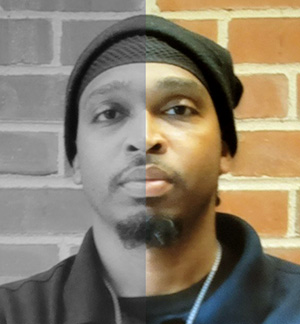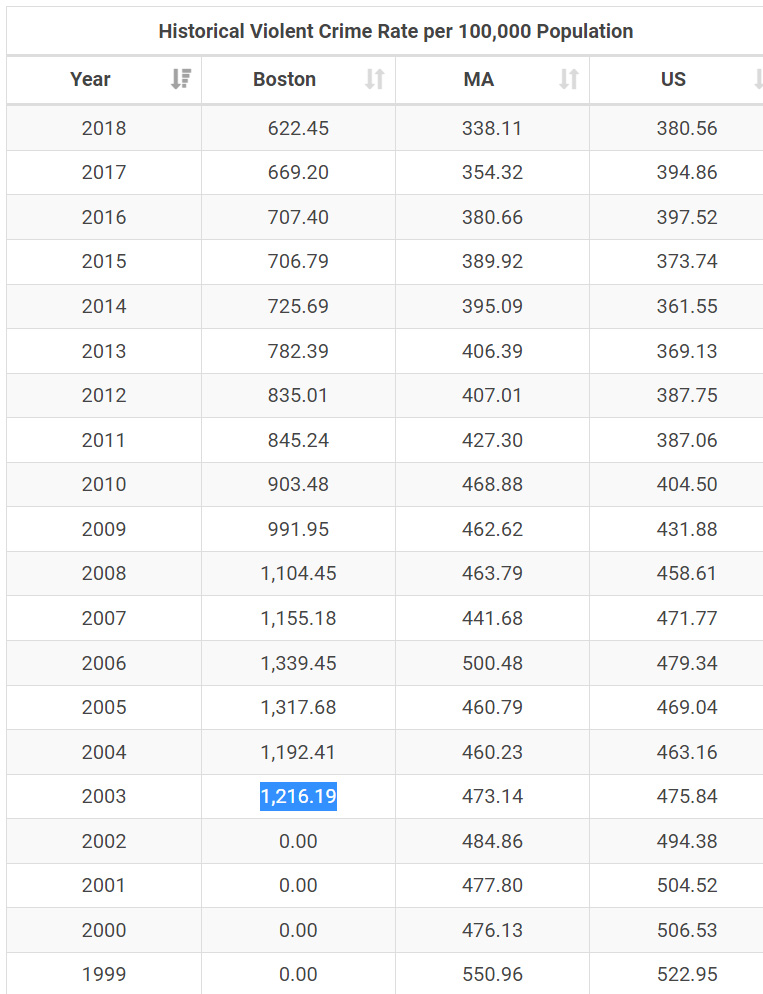Facts of the Case
2002 was a violent year on the streets of Boston. Everyone was on edge generally, with the world changing before our eyes in the wake of September 11th, 2001. It seemed like people had less patience with each other than in times past, and this dynamic played out on Boston's streets as much as anywhere else. For many growing up in this environment, owning a firearm was simply a function of self-preservation.

Nearly 42, Darryl has been incarcerated since 2003.
Darryl Scott was a Boston resident during these times, and like many young men at the time, found the need to be armed. Whether legally or not, Mr Scott found a prudent fear of threat to life in the act of living in Boston, and armed himself - not to commit crimes - but to defend himself and his loved ones.
Indeed this was not an unjustified fear, as Mr Scott had both had and witnessed experiences growing up in the neighborhood that made being armed just seem prudent. One of these experienced involved a Mr. Nabil Essaid, who accused an acquaintance of Mr Scott's of not paying for some marijuana. Feeling that violence against his friend would ensue if he did nothing, Mr Scott acted in defense of his friend and an altercation resulted. Nothing major, and Mr Scott left feeling that the situation had been resolved -- but it wwas enough that Mr Scott became known to Mr Essaid, a fact that would later have fatal consequences.
On the night of December 14th, Mr Scott was leaving a movie theater on Tremont St. with his girlfriend, who was then pregnant with his soon-to-be-born son. As they were leaving, Mr Scott walked by a small group of individuals, among whom he recognized Mr Essaid, who immediately began calling and tailing after him, with words like “Hey whats up now?” Mr Scott called back that he didn't have anything to do with the prior altercation, and then told his girlfriend to keep walking as he stopped and turned to face the men now pursuing them. When he did, the men stopped in a semi circle in front of him. One of the men began making furtive movements toward his waistband, which Mr Scott interpreted as a possible reach for a weapon. At the same time, the man on the right was moving closer to Mr Scott in a threatening manner.
Mr Scott, at this point fearing for his life, withdrew a handgun from his waistband and held it in such a way as not to raise alarm from the rest of the departing moviegoers, but so that it was clearly visible to his attackers. The men continued to advance, and Mr Scott tried to fire a warning shot at the ground - thinking that the sound would make the rest of the crowd run and that he could catch up with his girlfriend and escape. Unfortunately, that warning shot grazed the foot of the man in front of Mr Scott, while simultaneously the man on his right grabbed for his arm holding the handgun. In the struggle to free his arm from the attacker on the right, Mr Scott pressed three rounds from the handgun, and Mr Essaid fell mortally wounded.

Violent crime statistics for Boston
Mr Scott was charged with first-degree murder, which in Massachusetts REQUIRES the element of premeditation - an element conspicuously absent in this case. he was charged in the midst of a political climate which needed to project law enforcement wins on the national stage. Massachusetts' community policing efforts were being lauded as a model for the nation, and the fuel for these accolades was the consistently high numbers in crime prevention being posted by the LEOs in Massachusetts. Once such LEO, a man by the name of Daniel Keeler, was the lead detective on Mr Scott's case. We will have much more to say about Detective Keeler as the site grows and expands, but we will leave it for now ith a quote from a Boston Magazine article about him from 2006: "He was Mr. Homicide... The reason he got the reputation was that he closed cases. It wasn't until recently that people started asking how."
Mr Scott has ALWAYS been remorseful for the events of that day, and for the loss of the Essaid family. At the same time, he has always been adamant that the actions of those individuals that day made self-defense a life-or-death decision for him, and for his girlfriend and unborn child. No one is alleging that Mr Scott is not responsible for the death of Nabil Essaid. Mr Scott and his family are all strong believers that the punishment should fit the crime. The injustice here is not that Mr Scott was incarcerated -- but rather, that the charges filed against him, and for which he was found guilty, were was never appropriate to the facts of the case.



